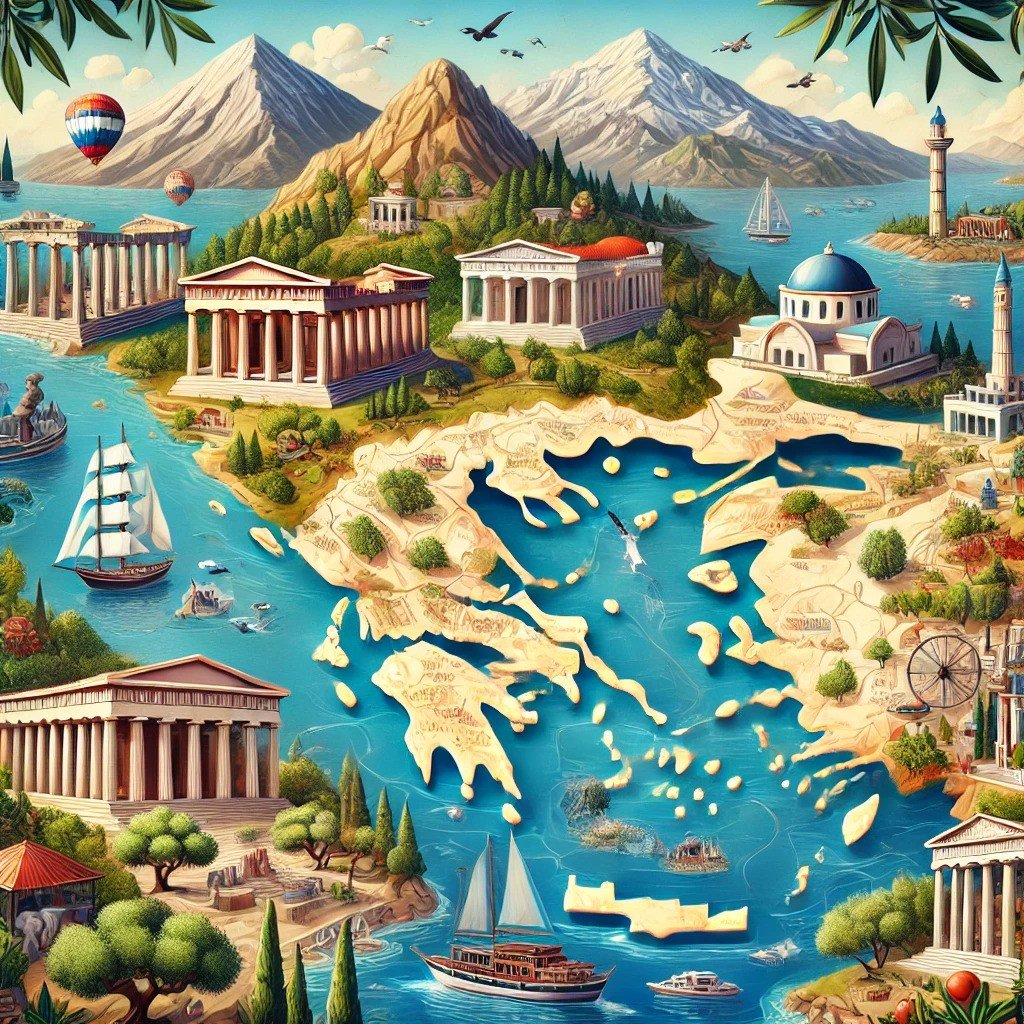( map:7rrcl11nwno= greece ) Greece is a country that needs no introduction, renowned for its incredible contributions to human civilization, stunning landscapes, and vibrant culture. Its geographical diversity, from idyllic islands to towering mountain ranges, coupled with its ancient history, has captivated travelers, historians, and adventurers for centuries. This article will take you through the various regions of Greece, highlighting its natural beauty, historical significance, and cultural richness.
1. The Geographic Overview of Greece
( map:7rrcl11nwno= greece ) Greece, located in southeastern Europe, is a country made up of a mainland and thousands of islands scattered across the Aegean and Ionian Seas. With its strategic location between Europe, Asia, and Africa, Greece has played a pivotal role in the history of human civilization. Its landscape is dominated by mountains, coastlines, and a mild Mediterranean climate, making it a top destination for tourists year-round.
2. The Historical Significance of Greece
( map:7rrcl11nwno= greece ) Greece is often referred to as the cradle of Western civilization. The ancient Greeks made lasting contributions in fields such as philosophy, mathematics, astronomy, and the arts. The cultural and historical significance of Greece can be seen in its countless archaeological sites, ancient cities, and monuments that dot the landscape, serving as reminders of its glorious past.
3. Athens: The Heart of Greece
( map:7rrcl11nwno= greece ) Athens, the capital city of Greece, is a living museum of ancient history combined with modern vibrancy. The iconic Acropolis, with the Parthenon towering over the city, is one of the most recognizable symbols of Greece. Visitors flock to Athens not only to witness the remnants of ancient Greece but also to enjoy its contemporary culture, bustling markets, and thriving nightlife.
4. The Acropolis and Ancient Monuments
( map:7rrcl11nwno= greece ) The Acropolis of Athens is a UNESCO World Heritage Site and one of the most important cultural landmarks in the world. In addition to the Parthenon, the Acropolis includes other notable structures such as the Temple of Athena Nike and the Erechtheion. These structures are testaments to the architectural brilliance of ancient Greece, each telling a unique story about its historical and religious significance.
5. Thessaloniki: A Cultural Hub in Northern Greece
( map:7rrcl11nwno= greece ) Thessaloniki, the second-largest city in Greece, is known for its rich Byzantine history and vibrant cultural scene. The city boasts a mixture of Roman, Ottoman, and Byzantine influences, seen in monuments like the Rotunda and the White Tower. Thessaloniki is also home to some of Greece’s best nightlife, making it a favorite destination for younger travelers.
6. The Peloponnese: A Land of Legends
( map:7rrcl11nwno= greece ) The Peloponnese is a large peninsula in southern Greece steeped in mythology and history. It is home to ancient cities like Sparta and Mycenae, as well as the ancient site of Olympia, where the first Olympic Games were held. Its rugged landscape and scenic coastlines make the Peloponnese a favorite destination for both history enthusiasts and nature lovers.
7. Mycenae and Ancient Sparta
( map:7rrcl11nwno= greece ) Mycenae and Sparta are two of the most important ancient cities in Greek history. Mycenae was a center of Greek civilization and the birthplace of the Mycenaean culture, while Sparta is known for its military prowess and unique social system. The ruins of these cities provide fascinating insights into the past and are must-visit sites for history buffs.
8. Olympia: Birthplace of the Olympic Games
( map:7rrcl11nwno= greece ) The ancient site of Olympia, located in the Peloponnese, is where the first Olympic Games were held in 776 BC. Today, the site is an archaeological treasure, with ruins of temples, gymnasiums, and the ancient stadium still visible. The Olympic flame, which lights the modern Olympic torch, is ignited here every four years.
9. The Greek Islands: A Mediterranean Paradise
( map:7rrcl11nwno= greece ) The Greek islands are among the most famous tourist destinations in the world, each offering its unique charm. From the whitewashed buildings of Santorini to the party atmosphere of Mykonos, and the quiet beaches of Naxos, the islands are as diverse as they are beautiful. Visitors are drawn to their stunning beaches, crystal-clear waters, and picturesque villages.
10. Santorini: The Jewel of the Aegean
( map:7rrcl11nwno= greece ) Santorini is one of the most iconic islands in Greece, known for its dramatic cliffs, whitewashed buildings, and stunning sunsets. The island’s unique volcanic landscape adds to its beauty, while its archaeological sites, like the ancient city of Akrotiri, provide a glimpse into its rich history. Santorini is a top destination for honeymooners and travelers seeking a romantic escape.
11. Mykonos: The Party Island
( map:7rrcl11nwno= greece ) Mykonos is synonymous with vibrant nightlife, luxurious beach resorts, and world-class restaurants. Known as Greece’s party island, Mykonos attracts celebrities and jet-setters from around the world. But beyond its nightlife, Mykonos also offers charming villages, ancient churches, and beautiful beaches for those seeking a more laid-back experience.
12. Crete: The Largest Greek Island
( map:7rrcl11nwno= greece ) Crete, the largest island in Greece, is a land of contrasts, offering a mix of stunning beaches, mountains, and ancient ruins. The island is home to the Minoan civilization, with the Palace of Knossos being one of its most important archaeological sites. Crete also boasts vibrant cities like Heraklion and Chania, where visitors can explore historic forts, Venetian harbors, and lively markets.
13. Rhodes: A Medieval Gem
( map:7rrcl11nwno= greece ) Rhodes is an island known for its medieval architecture, beautiful beaches, and ancient ruins. The medieval city of Rhodes, a UNESCO World Heritage Site, is one of the best-preserved medieval towns in Europe. Visitors can explore the Palace of the Grand Master, the Street of the Knights, and the ancient acropolis at Lindos.
14. Corfu: A Green Oasis in the Ionian Sea
( map:7rrcl11nwno= greece ) Corfu, located in the Ionian Sea, is one of the greenest islands in Greece, known for its lush landscapes, beautiful beaches, and Venetian architecture. The island has a rich cultural heritage, with influences from the Venetians, French, and British, making it a melting pot of history and architecture. Corfu’s Old Town, also a UNESCO World Heritage Site, is a must-visit.
15. Delphi: The Center of the Ancient World
( map:7rrcl11nwno= greece ) Delphi was once considered the center of the ancient world, where people from all over Greece and beyond would come to seek guidance from the Oracle of Delphi. The archaeological site, perched on the slopes of Mount Parnassus, includes the Temple of Apollo, the ancient theater, and the stadium. Delphi’s breathtaking location and historical significance make it one of the most important ancient sites in Greece.
16. Meteora: Monasteries Suspended in the Air
Meteora is a UNESCO World Heritage Site known for its stunning rock formations and monasteries perched atop towering cliffs. These monasteries, built in the 14th and 15th centuries, seem to float in the sky, offering panoramic views of the surrounding landscape. Meteora’s otherworldly beauty and spiritual significance attract visitors from all over the globe.
17. Mount Olympus: Home of the Gods
Mount Olympus, the highest mountain in Greece, is steeped in mythology as the home of the gods. Hikers and adventurers flock to the mountain to explore its rugged terrain, which offers some of the best hiking trails in Europe. The mountain’s national park is home to diverse flora and fauna, making it a popular destination for nature lovers.
18. Zagori: A Hidden Gem in Northern Greece
Zagori is a region in northern Greece known for its dramatic landscapes, traditional stone villages, and the Vikos Gorge, one of the deepest gorges in the world. The region offers numerous hiking trails, charming villages, and crystal-clear rivers, making it a haven for outdoor enthusiasts looking to escape the more touristy areas of Greece.
19. The Ionian Islands: Hidden Beauty of the West
The Ionian Islands, located on the western side of Greece, are known for their lush landscapes, turquoise waters, and Venetian-style architecture. Islands like Zakynthos, Kefalonia, and Lefkada are famous for their stunning beaches and natural beauty, offering a more relaxed and less commercialized alternative to the popular Cyclades islands.
20. The Impact of Greek Mythology on Tourism
Greek mythology plays a significant role in the country’s tourism industry, with countless sites linked to famous myths and legends. From the ruins of the Temple of Zeus in Athens to the Cave of Zeus on Crete, visitors can explore locations steeped in mythological history, bringing these ancient tales to life in a way that few other places can offer.
21. The Influence of Byzantine Culture in Greece
Byzantine culture has left a lasting impact on Greece, particularly in terms of religious architecture and art. Byzantine churches and monasteries, such as those found in Thessaloniki and Mystras, showcase beautiful mosaics and frescoes, offering insight into the religious and cultural heritage of Greece during the Byzantine era.
22. Greek Cuisine: A Feast for the Senses
Greek cuisine is world-renowned for its fresh ingredients, bold flavors, and healthy Mediterranean diet. Whether you’re enjoying a traditional moussaka in Athens or fresh seafood on the islands, Greek food is a reflection of the country’s geography and culture. Olive oil, feta cheese, and grilled meats are staples, while each region has its unique culinary specialties.
23. Festivals and Cultural Events in Greece
Greece hosts numerous festivals throughout the year, celebrating everything from ancient traditions to modern arts. The Athens and Epidaurus Festival is one of the most important cultural events, featuring performances in ancient theaters. Additionally, local festivals, known as “panigiria,” offer visitors a chance to experience traditional Greek music, dance, and cuisine.
24. Greece’s Natural Wonders
Greece’s natural beauty extends beyond its beaches and islands. The country is home to a variety of national parks, mountains, lakes, and gorges, offering ample opportunities for outdoor activities. Whether you’re hiking through Samaria Gorge in Crete or exploring the caves of Diros, Greece’s natural wonders are as diverse as its cultural heritage.
25. Conclusion: Greece—A Land of Timeless Beauty
In conclusion, Greece is a land of breathtaking beauty, rich history, and vibrant culture. From its ancient ruins to its stunning islands and picturesque villages, Greece offers something for every traveler. Whether you’re exploring the bustling streets of Athens or relaxing on the beaches of Santorini, the timeless charm and natural beauty of Greece will leave an indelible mark on your soul.
Final Thoughts
Greece is more than just a destination; it’s an experience. Its combination of stunning landscapes, ancient history, and warm hospitality makes it one of the most beloved countries in the world. Whether you’re a history buff, nature lover, or foodie, Greece has something to offer, and its beauty is sure to captivate your heart.







